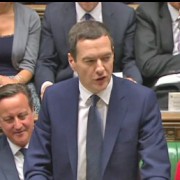How the Chancellor’s 2014 Autumn Statement affects YOU!
George Osborne, the Chancellor of the Exchequer, announced his Autumn Statement on Wednesday (3 Dec 2014) in what could be seen as a mini budget. Here we focus on the key announcements, concentrating on those relating purely to taxation, as it is those which affect you, our customers, most directly.
1). First some good news: The UK is seeing the fastest growth out of all the G7 countries, and the number of people employed is at its highest point ever. This is good for all of us because it restores optimism in the UK economy, higher employment speaking for itself.
2). As we announced in a separate blog post, Stamp Duty (Land Tax) has been given a major shake-up and, for anyone buying a house for £935,000 or less, the amount of Stamp Duty which they’ll have to pay will be less, and sometimes very significant. See our separate blog post and infographic for more detail.
3). In the financial year 2015-16, the tax-free personal allowance (which is the amount you can earn before you start to pay any tax) will increase to 10,600 which is an increase of £600. So … more tax-free money in your pocket, which is good.
4). Economy flights will become cheaper for under 12s from 1 May 2015 and under 16s from 1 March 2016, because their tickets will become exempt from tax on those dates. So … a small concession, but another welcome one. Average 4-person families will save £26 for flights within Europe and £142 on flights to the U.S.
5). From 3 December 2014, spouses will be able to inherit their partner’s ISA benefits should their partner pass away. Currently this is not the case and the change will mean that, from 6 April 2015, the surviving spouse or civil partner will be able to Read more

